Around the same time as 60 to 70 residents of the University Heights Neighborhood Association were meeting Wednesday night to learn tips on how to fight retail development in their historic neighborhood, workers were boarding up windows and doors on the house that’s at the heart of the zoning controversy.
The now-boarded-up house is at 1755 S. National Ave., diagonal from Mercy Hospital and at one of the busiest intersections in Springfield.
The developer, BK&M LLC, got a permit to board up the home but has not yet applied for a permit to demolish it as of Thursday morning, according to online records with the city.
Why was home boarded up?
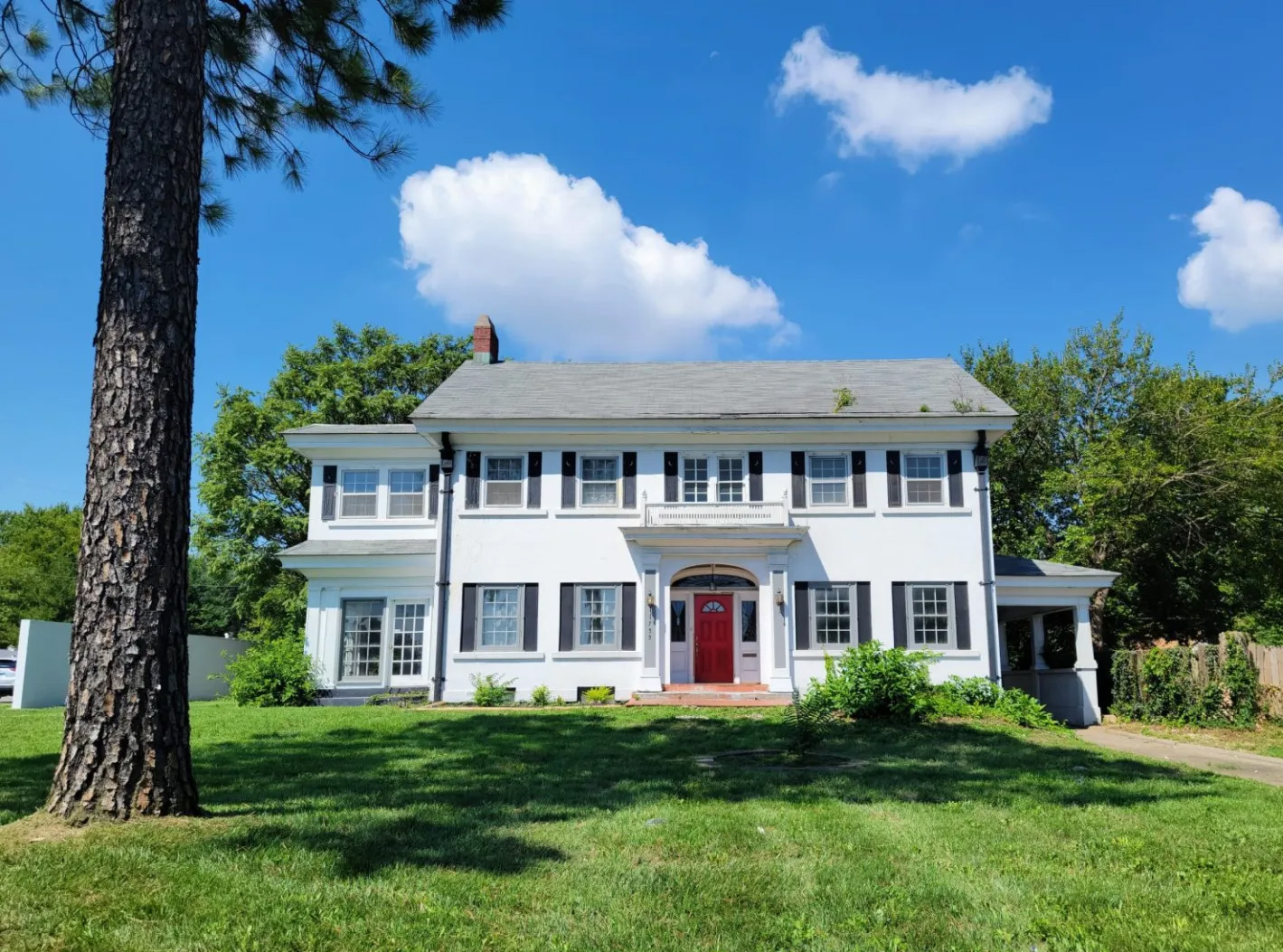

Ralph Duda III with BK&M said the tenants that were living in the home were moved to a different property, and the building was boarded up because the house is deteriorating.
“There was issue after issue,” Duda said. “Their utility bill was close to $800 a month. The insulation is terrible. The windows are bad. There's frequent leaks. Drains don't drain. The HVAC air-conditioning unit blew out (and) a lot of wood rot around the house.
“It's a hazard. That was a business decision we made as a company. I think we made the right decision,” he said. “I am aware that (boarding it up) probably creates a stir, but at the end of the day, we are doing what is best for the area.”
Duda wouldn't comment about when the house might be demolished.
Meeting held while house was boarded up
Residents in the neighborhood have been up in arms in recent weeks after learning developers purchased five pieces of property on or near the intersection of National Avenue and Sunshine Street and want it rezoned from residential to commercial. Just last week, a member of the neighborhood association filed a lawsuit against the association.
Following an informational meeting last month hosted by the developers that turned raucous, the neighborhood association’s President Jan Peterson invited former Springfield Planning and Zoning commissioner Dee Ogilvy to give tips and advice on how best to make their case to the commission.
Former P&Z commissioner gives advice
Ogilvy served on the commission for about seven years and is a member of the Midtown Neighborhood Association.
That very heated and confrontational August meeting ended early, when a resident called a developer’s wife an obscenity.
On several occasions during Wednesday’s meeting, Ogilvy advised the residents to take a different approach when speaking to planning and zoning commissioners.
“Don’t yell at them. They are volunteers,” Ogilvy said. “Other than being a first responder, it’s the most exhausting thing you can do and (commissioners) do not get paid to be on planning and zoning, nor is anybody elected to do that.”
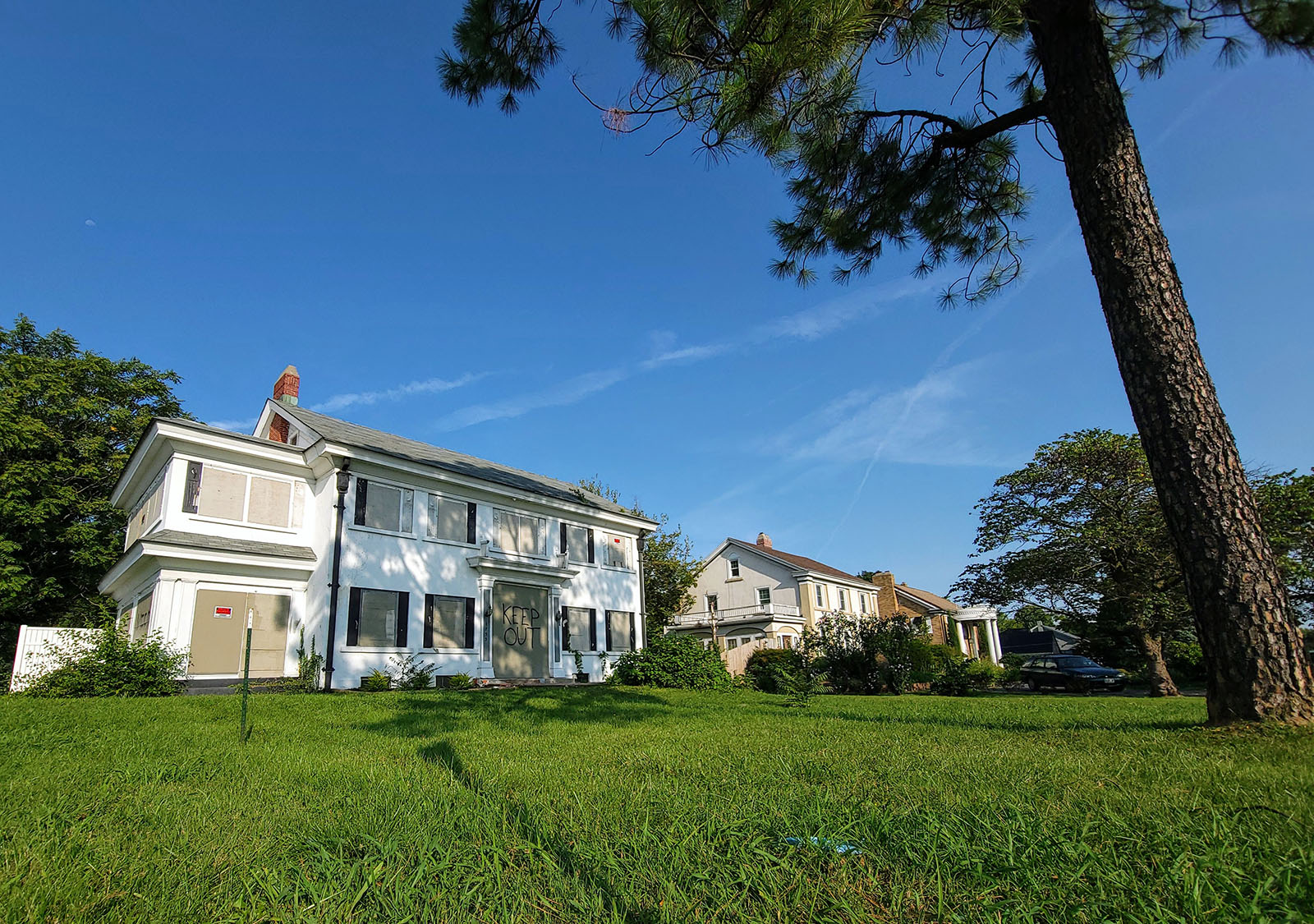
She advised the attendees that the commission would likely consider what went down at that August meeting and any future meetings related to this issue.
“They do look at how many of you showed up for a neighborhood meeting,” she said. “They also look at all the notes that came from that meeting and whether it was civil or was it the developer that wasn’t civil or what. They read all that stuff.”
Jason Ray, another former planning and zoning commissioner, was among those who attended the Wednesday meeting.
Ray, too, told the residents that the planning and zoning commission would likely consider the level of civility — or lack thereof — at that August meeting.
Residents concerned about traffic
Ogilvy repeated a few times that she was not there to advocate for or against the developers’ plans; she wanted to give general information based on her experience as a commissioner as well as her past experience working for developers.
“If five of you are going to speak, don’t talk about the same topic. Don’t repeat the same thing,” she said. “They will just get tired of it after a while. They don’t want to be there till midnight.”
Ogilvy told residents not to reach out to any friends or family they might have sitting on the planning and zoning commission. She said when someone from the community attempts to speak to a commissioner about an issue outside of the planning and zoning meeting, the commissioner has to tell the city’s attorney what happened.
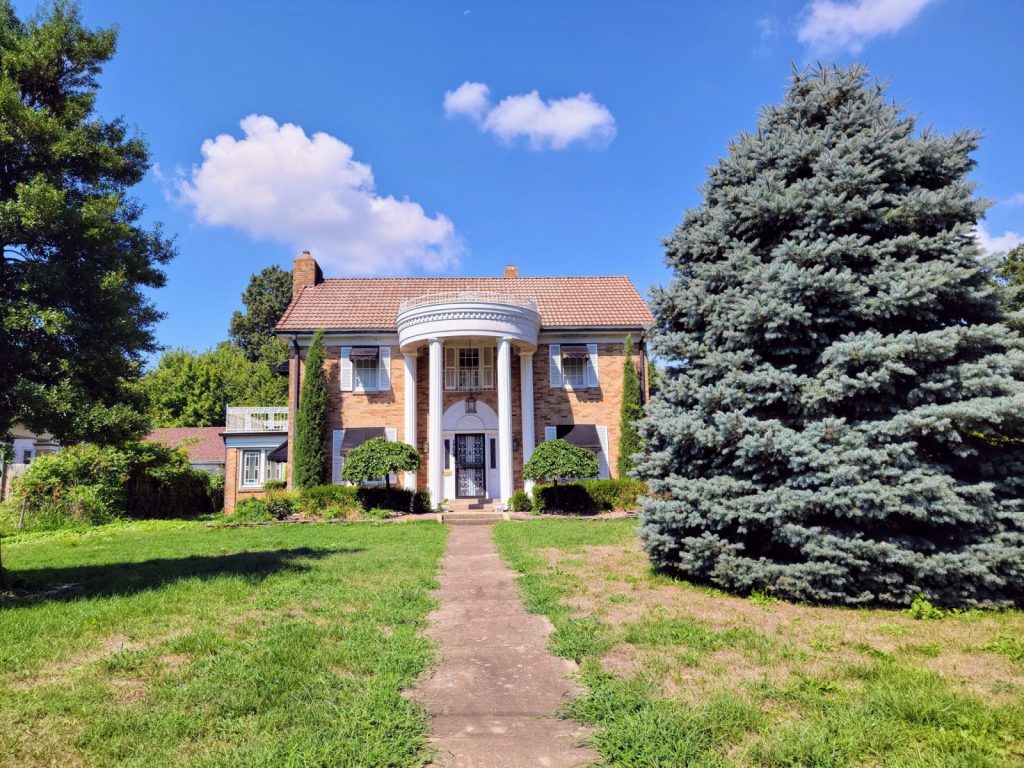
“Then they have to take it under consideration,” Ogilvy said. “Say your cousin is on planning and zoning and you thought, ‘I can just tell you over Thanksgiving dinner what we think,’ your cousin could be removed from planning and zoning.”
One resident expressed concerns about the increased traffic the developers’ plans would cause in the neighborhood and asked Ogilvy if that is something commissioners consider.
“Traffic and access to the road is huge,” Ogilvy said. “Traffic is huge. Everybody takes that into consideration.”
Could houses be demolished?
Another resident wondered if the developers could demolish the houses now without having to get permission from any board or commission.
A man in the audience said he doesn’t believe the bank that provided much of the financing would allow the developers to tear down the houses right now.
“The property is subject to a deed of trust,” the man said. “Most of their finances are from Guaranty Bank. Guaranty Bank isn’t going to authorize them to demolish the properties. Guaranty Bank has to preserve the value and would prevent them from doing something like that.”
Resident Jym Wilson, who sometimes does freelance photography for the Daily Citizen, asked if any kind of historical designation on the homes would protect them from being demolished.
To answer that, Ogilvy gave the microphone to local historian Richard Crabtree, who was sitting in the audience. Crabtree formerly served on the Landmarks Board.
“I will tell you that as far as city council is concerned, it doesn’t matter one lick,” Crabtree said. “Many things have been torn down that are currently protected. One of the reasons I left the Landmarks Board is because we were just doing nothing.”
Crabtree added that he believes the concerns over increased traffic is definitely something that could make a difference.
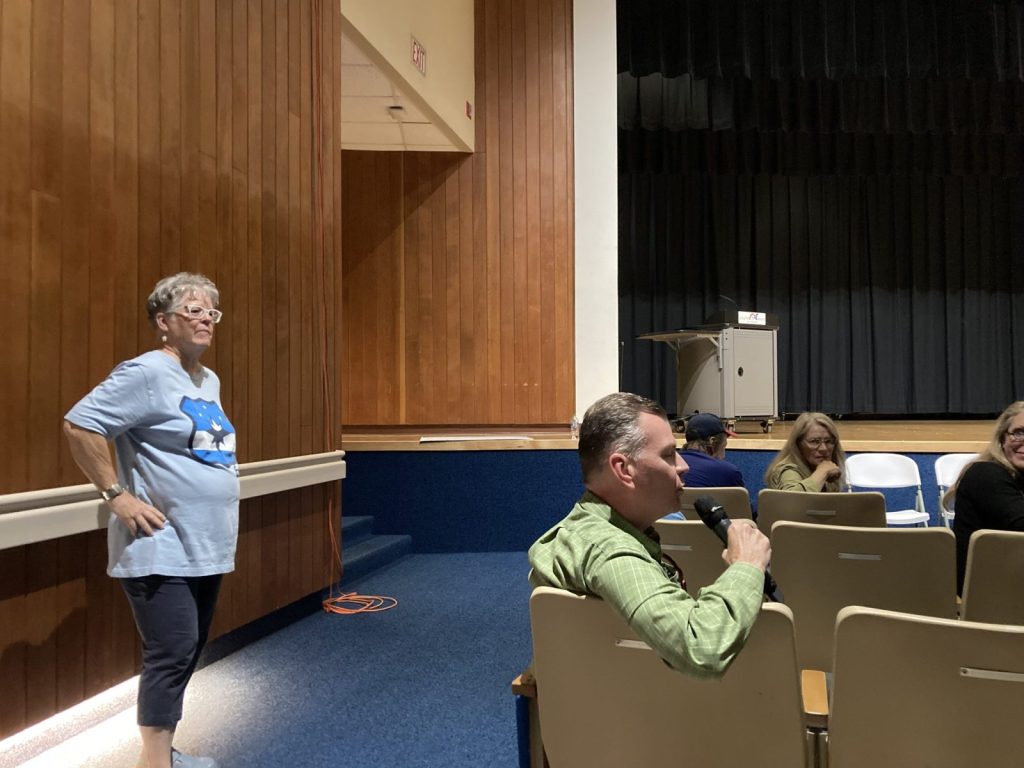
“The only thing you guys can do at this point is to try to slow this thing down or stop it possibly with a comprehensive traffic study,” Crabtree said.
Crabtree said this issue came up years ago when he was president of the University Heights Neighborhood Association and the white house on the corner was going to be sold.
“I went and talked to the people, and they swore up and down this was never ever ever going to happen: ‘You’d have to buy the whole corner,’” Crabtree said. “Well, this is what happened.”
What do the developers intend to do?
Developer Ralph Duda III with BK&M and his partner, Anthony Tolliver, presented their general plans for a commercial development in the University Heights Neighborhood at that August meeting with residents.
Their plans include potentially tearing down a few historic houses at or near the intersection of National Avenue and Sunshine Street. Among them is 1755 S. National Ave., which has been the subject of numerous news stories over the years because residents have strongly opposed the property being used for anything other than a single-family residence.
Also, there are the two houses to the north — 1745 S. National Ave. and 1739 S. National Ave. — as well as one around the corner at 1138 E. University St.
In addition, the company bought a vacant parcel to the west of 1755 S. National Ave.
The Daily Citizen checked property records last month and found that four of the five were bought on either March 30 or March 31.
Reached by phone on Thursday, Duda said he wants to have fun restaurants on the first level — perhaps a destination breakfast restaurant like The Pancake Pantry in Nashville, a bakery and a “top-notch” Italian restaurant.
The second two levels would be executive lofts.
Duda said the exterior and interior character would reflect the 1920s Craftsman style that is common throughout the University Heights Neighborhood.
“It's all positive. We are trying to navigate these rough waters. I didn't know it was going to be this contentious,” he said. “But our mission is pure.
“It's a tough pill to swallow for University Heights, but I'm sorry. That corner has been deteriorating for six years,” Duda said. “If they are so passionate about it, maybe they should have bought it.”
Residents do not want retail on corner
Residents are making it clear they don’t want commercial.
“That white house on the corner is something that a lot of us have some form of attachment to,” one woman said Wednesday. “It’s a landmark in Springfield, and I personally see it as the keystone to our neighborhood. If we lose that house, it’s the domino effect, and the house of cards falls behind it. It will bleed throughout the rest of the neighborhood as a cancer.”
Peterson, the association’s president, agreed.
“I think that the only answer at the present is for it to remain single-family residential,” Peterson said in a phone interview Thursday. “All the surrounding properties are single-family residential. That corner is labeled single-family residential in both Vision 2020 and the Forward SGF comprehensive plan. I don’t think there’s any question about that.
“We’re working really hard on this issue, and we are reaching out to a lot of people to get the best information we can to come up with the best arguments against this rezoning,” she said. “We just don’t feel that this is the right thing.”
More comments, questions from meeting
In addition to tips on how to best communicate with the planning and zoning commission, Ogilvy fielded other questions and concerns.
She encouraged the neighborhood association to work with city staff to create a neighborhood plan. These are not legally binding and won’t help with the current situation, but Ogilvy said it’s something that could prevent future problems.
“You need to define the quadrants of your neighborhood and say, ‘this stays historic’ and that needs to be on record with the city,” Ogilvy said. “It’s super important to get a plan so that the next time a developer comes in, you go: ‘We have this. The city has this on file. And we want to stick with these things.’
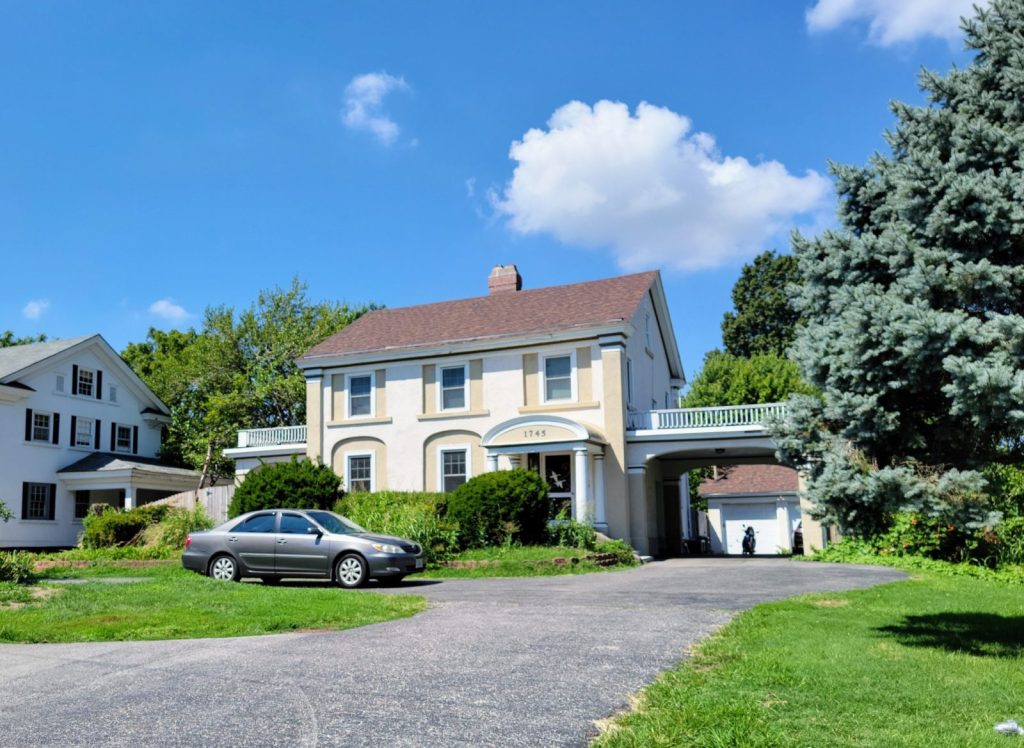
“I’m not saying I’m for or against what’s going on in your neighborhood. But I am telling you that property at some point is going to get developed,” she said. “That’s a freight train, and it’s coming. You just gotta get out in front of it and say, ‘This is what we will accept in our neighborhood. and this is what we don’t want in our neighborhood.’”
One man said he’d like to see a wall constructed that would take care of much of the traffic and noise issues that might prevent people from wanting to live in the homes.
“They are never going to be worth what they might have been. But with an attractive wall, a decorative wall there,” he said, “they are valuable pieces of residential property.
“You see walls in St. Louis and at other intersections,” he said. “They work and they make houses habitable.”
Ogilvy said these are all ideas that should be expressed to the planning and zoning commission.
One woman said she believes the neighborhood could come together and purchase the property, if that were an option.
“I feel like if we had the time, which I don’t know that we do,” she said, “that is something I feel could happen.”

